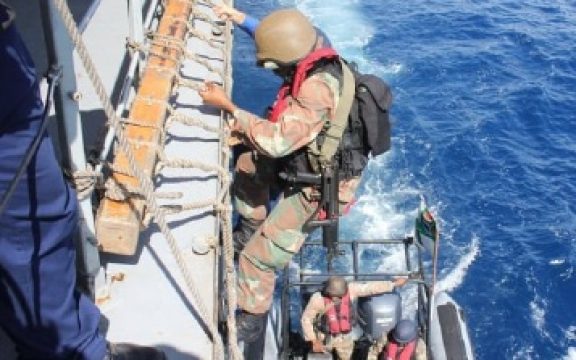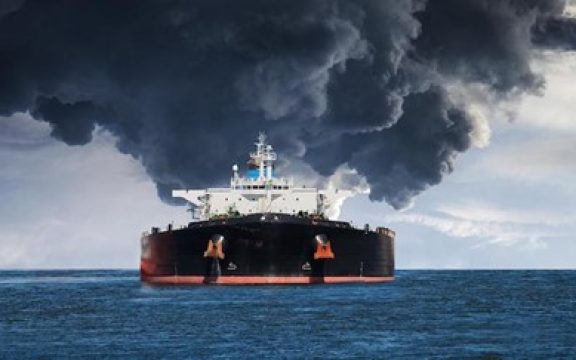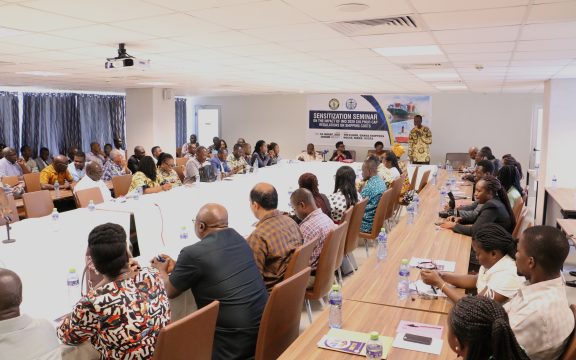INTRODUCTION
Ghana currently lacks a law governing bunker oil spills in its waters. Only vessels engaged in the bunkering trade inside Ghana’s seas are issued operational permits by the Ghana Maritime Authority.
Ghana’s oil potential and increasing production capacity, together with its economic growth is likely to lead to increased shipping activities as more ships call at the country’s ports and offshore installations. This has raised concerns about the country’s lack of legislation on oil spills in territorial waters.
The International Maritime Organization (IMO) lists and administers the Bunkers Convention, which was signed in London on March 23, 2001, and later enforced on November 21, 2008. The Convention was designed to address the final large loophole in the international regime for paying victims of ship-related oil disasters; and while ratified by 87 countries, it has accounted for up to 92.57 percent of global tonnage. It is worth mentioning that, prior to the establishment of the Bunkers Convention, existing international frameworks exclusively dealt with pollution caused by ship oil spills.
The Bunkers Convention’s goal is to create a standard worldwide mechanism that would see to the availability and payment of adequate, quick, and effective compensation to people that have been affected by the pollution caused by a ship’s escape or discharge of bunker oil.
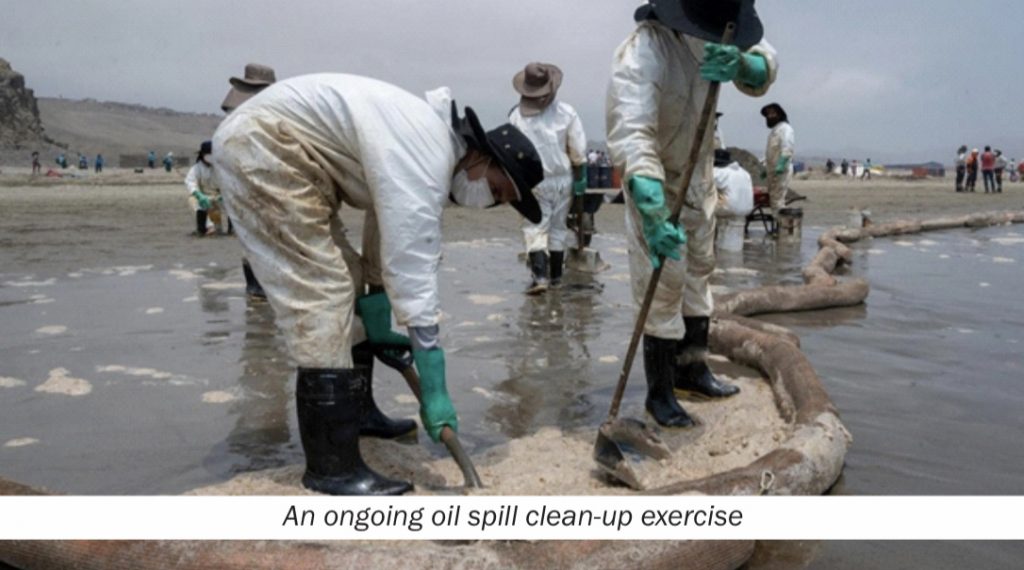
The oil spills at sea caused by the ships “Torrey Canyon,” “Amoco Cadiz,” “Exxon Valdez,” and “Erika,” among others, influenced the development of the International Convention on Civil Liability for Oil Pollution Damage, adopted in Brussels in 1969, and the International Convention on the Creation of a Fund for Compensation for Oil Pollution Damage, adopted in Brussels in 1971; both modified by the protocols of 1976 and 1977.
Ghana accepted both Conventions, as well as their respective amendment protocols, with Law N° 16.820 of April 23, 1997.2
It is however important to note that these conventions form a part of an international system meant to compensate for damages caused by persistent oil spills from tankers, which cover two levels of obligation thus;
- The CLC 69 / PROT 92 system, being the first level that focuses on the shipowner’s obligation, and
- The FUND 71 / PROT 92 system, the second level, which oversees the International Fund of 1992’s payout.
NB: Ghana has not ratified the third supplementary level, which oversees the 2003 Fund.
The CLC 92 and the FUND 92 Conventions do not regulate the liability for bunker oil that causes pollution damage by ships other than tankers; as no international rules have been put in place to deal with such spillages even though it was for this that the Bunkers Convention was originally created to address. The IMO developed the Bunkers Convention to govern such liability and ensure the need for the registered owner of a vessel to maintain compulsory insurance cover.
Another important component is the potential of direct action, which would allow a claim for environmental damage compensation to be brought against an insurer directly. The Convention requires ships with a gross tonnage of more than 1,000 gross tons to maintain insurance or other financial security, such as a bank or similar financial institution’s guarantee, to cover the registered owner’s liability for pollution damage in an amount equal to the applicable national or international limitation regime’s limits of liability, but not exceeding an amount calculated in accordance with the Convention on Limitation of Liability for Maritime Damage.3
This Convention does not however, apply to warships or other vessels owned or operated by a State and used for the time being for Government non-commercial service. Even with such vessels, they are not required to carry any insurance. Instead, they are expected to carry a certificate issued by the appropriate authority of the State of their registry indicating that the ship’s liability under the Convention is covered.4
Ghana is not a party to the Bunkers Convention. Therefore, to be able to incorporate the Convention into Ghanaian law, it would be required to accede to the Convention and deposit the instrument of accession with the IMO Secretary-General.
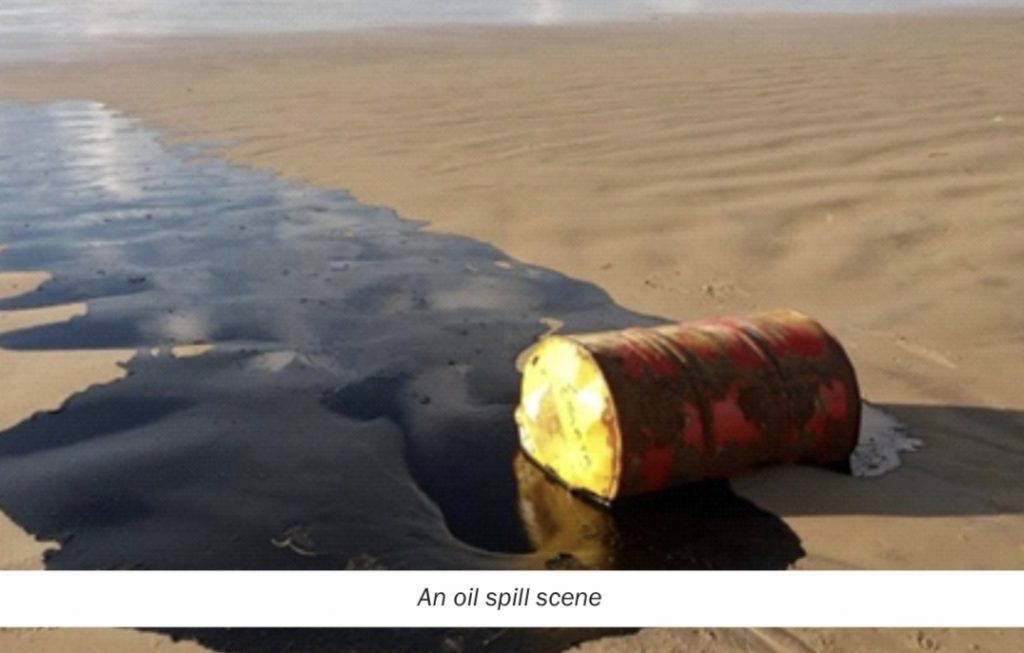
THE BUNKERS CONVENTION
The Bunkers Convention must be widely ratified and implemented, not least because bunker oil spills account for nearly half of all pollution claims, and bunker oil spills are typically more difficult and expensive to clean as compared to crude oil spills due to their high viscosity and persistent nature.
Furthermore, the Bunkers Convention completed the international legal framework on pollution liability and compensation, which previously included the CLC 1992 and the 1996 International Convention on Liability and Compensation for Damage in Connection with the Carriage of Hazardous and Noxious Substances by Sea (as amended by the 2010 Protocol thereto).5
The Bunkers Convention is a clear and simple Convention that consists of only 19 articles, highlighted as follows:
- SCOPE OF APPLICATION
In accordance with Article 2, the Bunkers Convention applies to pollution damage caused in the territory, including the territorial sea, and the Exclusive Economic Zone of a State Party, as well as to preventive measures, wherever taken, to prevent or minimize such damages. In this light, in a bid to identify the scope of application of the Convention, it would be necessary to understand what is meant by pollution damage and preventive measures.6
Article 1(9) defines “Pollution damage” as:
- loss or damage caused outside the ship by contamination resulting from the escape or discharge of bunker oil from the ship, wherever such escape or discharge may occur, provided that compensation for impairment of the environment other than loss of profit from such impairment shall be limited to costs of reasonable measures of reinstatement actually undertaken or to be undertaken; and
- the costs of preventive measures and further loss or damage caused by preventive measures.
Article 1(1) “Ship” Any seagoing vessel and seaborne craft, of any type whatsoever”.
This definition is very wide and is applicable to all types of ships except as provided in article 4(2). Here, the Convention excludes the applicability of its provisions to warships, naval auxiliary or other ships owned or operated by State and used, for the time being, only on Government non-commercial services.
Article 1(7) “Preventive measures” refers to any reasonable steps taken after a pollution incident to prevent or reduce pollution damage.”7
Article 1 (8) “Incident” refers to any occurrence or series of occurrences that produce pollution harm or pose a serious and imminent threat of producing such damage.”8
In the current definition, there are two points that should be highlighted;
- The first being that, though a series of distinct events may occur, if the events share a common origin, they would have to be treated as a single event for the purposes of claim limitations.
- The second, addresses that the expense of preventive measures can be reimbursed in the event of an event occurring prior to a bunker escape.
TERRITORIAL APPLICATION
Article 2(a) of the Bunkers Convention stipulates that the Convention applies exclusively to pollution damage “caused in the territory, including the territorial sea of a State Party, and in the exclusive economic zone […]”9
“Exclusive Economic Zone” refers to an area beyond and adjacent to the territorial sea and extending not more than 200 nautical miles from the baselines from which the breadth of the territorial sea is measured as declared under the Maritime Zones Delimitation Law, 1986 (P.N.D.CL 159).10
It is important to understand that the event that gives rise to the damage caused by contamination can occur anywhere, so in a similar way, preventive measures to protect the territory of a State Party can also be taken anywhere.
LIABILITY OF THE SHIPOWNER
Article 3(1) of the Bunker Convention places liability for any pollution damage caused by bunker oil on the shipowner.
Except as provided in paragraphs 3 and 4, the shipowner at the time of an incident shall be liable for pollution damage caused by any bunker oil on board or originating from the ship, provided that, if an incident consists of a series of occurrences having the same origin, the liability shall be attached to the shipowner at the time of the first of such occurrences.11
Liability under the Bunkers Convention is thus strict. However, the shipowner’s liability is not absolute as he will not be liable for pollution damage if he proves that:12
- the damage resulted from an act of war, hostilities, civil war, insurrection, or a natural phenomenon of an exceptional, inevitable, and irresistible character; or
- the damage was wholly caused by an act or omission done with the intent to cause damage by a third party; or
- the damage was wholly caused by the negligence or other wrongful act of any Government or other authority responsible for the maintenance of lights or other navigational aids in the exercise of that function.13
Liability is joint and several when more than one person is liable for the damage. In this regard, the Convention allows the shipowner to seek compensation from the other parties responsible for the damage, as it expressly specifies that it does not affect the shipowner’s right of recourse that exists independently of the Convention.
It’s worth noting also that if the shipowner can prove that the pollution damage was caused wholly or partially by the person who incurred the harm, or by that person’s negligence, the shipowner may be exonerated entirely or partially from any duty to that person.
LIMITATION OF LIABILITY
Article 6 states that:
“Nothing in this Convention shall affect the right of the shipowner and the person or persons providing insurance or other financial security to limit liability under any applicable national or international regime, such as the Convention on Limitation of Liability for Maritime Claims, 1976, as amended.”14
The Bunkers Convention’s Article 6 fails to establish a specific limitation regime. Under national or international frameworks, claims for bunker pollution are subject to statutes of limitations.
The international regime will be the LLMC Convention, either in its original 1976 version or as amended by the Protocol thereto adopted in 1996.
The shipowner’s responsibility will be established by the national law of the country wherein the pollution happened. It is worth noting that the Bunkers Convention’s relationship with the applicable national and international regimes tends to spur some form of ambiguity. The extent of the restriction will be determined by the state in which the pollution incident occurred.
The LLMC Convention, its 1996 Protocol, and any other limitation-of-liability convention are not signed by Ghana. As a result, liability limits will have to be included in national legislation. If this is not done, and the Bunker Convention is ratified and integrated into domestic law, the shipowner’s obligations under the Convention will be strict and unlimited.
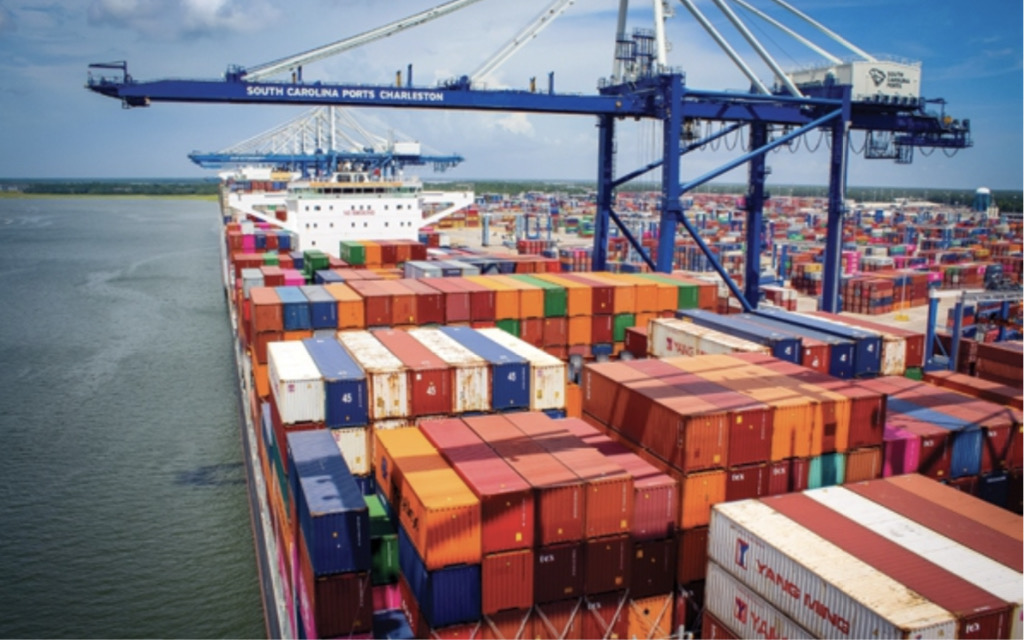
COMPULSORY INSURANCE
Article 7(1) of the Bunkers Convention requires the registered owner of a ship with a gross tonnage beyond 1,000 to have insurance or other financial security, such as a bank or comparable financial institution’s guarantee, to cover any liability for environmental damage. The State Party registering the ship must give a certificate showing that the ship is covered by insurance.
The limits of liability mentioned in the article under consideration are understood to correspond to the limits set by the State Party that issues the certificate mentioned in the second article of the convention. However, it is worth mentioning that the article also sets a maximum limit that will be determined in compliance with the 1996 Convention.
NB: though insurance is not mandatory for vessels under 1,000 GRT, the rest of the Convention still applies to them.
TIME LIMITS
The rights to compensation will be lost unless a claim is lodged under the Bunkers Convention “within three years of the date of the incident,” according to Article 8. However, no action may be taken once the incident that caused the damage has occurred for more than six years. Article 1(8) classifies an “incident” as any occurrence or series of occurrences with the same source that causes pollution harm or poses a significant and immediate threat of causing such harm.
Furthermore, in the case of a series of events, Article 8 states that the six-year period begins on the first of such occurrence. This clause was principally based on the fact that, in certain situations, oil pollution does not appear for a long period after an incident. As a result, the drafters of the Bunker Convention decided that it was important to provide a date beyond which no claims could be lodged.
The Bunkers Convention’s Articles 9 and 10 emphasize jurisdiction, as well as the right of courts within a State Party’s jurisdiction to enforce judgments and the obligation of other States Parties to recognize and enforce a judgment issued by a competent court in another State Party without revisiting the case’s merits.15
WHY DOES GHANA NEED THE BUNKERS CONVENTION?
Ghana’s geographic location, along with the discovery and drilling of oil on the main east Atlantic trade route since 2010, with its attendant heavy maritime traffic, makes her particularly vulnerable, and the probability of a ship causing pollution damage to her coastline in catastrophic proportions need not be emphasized.
Pollution from accidental, operational, and deliberate discharges endangers the aforementioned maritime interests due to the strong reliance on petroleum imports. Over the past decade, the Port Authority has expanded its existing port, built new terminals, upgraded IT systems, and widened operational partnerships and networks.
This has been reflected by the port’s ability to handle increasing volumes of traffic from 7.3 million tonnes in 2003 to 24.6 million tonnes in 2019 with the potential for further growth based on the foregoing.16 As a result of the foregoing, vessel traffic through ports is extremely high, posing a major risk of bunker fuel contamination in the event of an accident.
Also, as a coastal State, sensitive areas such as mangrove occurrence are limited to three primary places: surrounding Elmina, west of Cape Coast, and the Volta Delta, all of which are affected by tidal flushing. The mangroves serve as fish breeding grounds for the lagoons nearby. The lagoon fisheries are a vital aspect of the economy of coastal fishing villages all along the coast. This is understandable, given that most lagoons are also significant nurseries for marine species such as snappers and mullets.
Ghana stands to profit as well, as the Convention will contribute significantly to the protection of the maritime environment, while improving coastal communities and recompensing victims of bunker oil spills.
In view of the foregoing, Ghana needs to accede to the Bunkers Convention and provide for its adequate implementation in domestic legislation.
CONCLUSION
The Merchant Shipping Act of 1963 (Act 183) as amended featured a number of outdated and archaic clauses that did not serve Ghana’s maritime interests properly. The law was modernized and replaced by the Ghana Shipping Act 2003.The Ghana Shipping Act 2003, is a set of laws that govern shipping in Ghana. It covers a wide range of topics, despite the fact that it is primarily concerned with public law.
Except for pilotage, marine pollution, oil pollution liability and compensation for oil pollution damage, maritime security, and other areas of commercial shipping like sea freight and maritime insurance, the Ghana Shipping Act 2003 covers practically all aspects of merchant shipping.17
The Ghana Shipping Act 2003, however, has no provision for mandatory insurance certificates and financial security options, which are a requisite for the implementation of the Bunkers Convention.
The above exposition of the salient provisions of the Ghana Shipping Act supports the need for the Regulations to Incorporate the Bunkers Convention into the Legislation of the Republic of Ghana.
By: Kojo Frimpong , Ghana Shippers’ Authority




